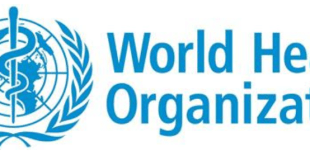Blood cancers, collectively known as hematologic malignancies, encompass a group of diseases that originate in the bone marrow and affect the blood cells. These conditions, which include leukemia, lymphoma, and myeloma, can often present with subtle and vague symptoms in their early stages, making them challenging to diagnose.
The Importance of Recognizing Early Symptoms
Early detection of blood cancers can significantly improve the prognosis and enhance the effectiveness of treatment. Recognizing the subtle symptoms that these diseases can present is crucial, as it allows for timely intervention and a better chance of successful outcomes.
1. Unexplained Fatigue and Weakness: While fatigue is a common complaint, persistent and unexplained fatigue accompanied by weakness could be a sign of blood cancer. These symptoms arise due to the body’s decreased ability to produce healthy blood cells, leading to anemia.
2. Unexplained Weight Loss: Sudden and unintended weight loss without any apparent reason might be an early sign of blood cancer. Cancer cells can alter the body’s metabolism and cause weight loss.
3. Frequent Infections: Blood cancers can compromise the immune system, making the body more susceptible to infections. If you find yourself falling ill more often than usual, especially with infections that take longer to recover from, it’s time to consult a healthcare professional.
4. Easy Bruising and Bleeding: Unexplained bruising, bleeding gums, or prolonged bleeding after minor injuries can indicate a problem with the blood’s clotting ability, which might be linked to certain blood cancers.
5. Enlarged Lymph Nodes: Lymph nodes are a vital part of the immune system, and their enlargement could be a sign of lymphoma. These swollen nodes are usually painless and may be felt in the neck, armpits, or groin.
6. Bone Pain: Blood cancers can affect the bones, leading to pain or discomfort. Persistent bone pain, especially in the back or ribs, should never be ignored.
7. Night Sweats: Profuse night sweats unrelated to room temperature or activity are concerning. While they can have various causes, they are also seen in some blood cancers.
Diagnosis and Next Steps
If you notice any of these symptoms, it’s important not to panic but to consult a medical professional promptly. Diagnosing blood cancers requires a comprehensive approach involving various tests and evaluations.
1. Blood Tests: A complete blood count (CBC) can reveal abnormalities in the blood cell counts, providing important clues about the presence of blood cancer.
2. Biopsy: A biopsy involves the removal of a small sample of tissue for examination under a microscope. Bone marrow biopsies are particularly useful in diagnosing blood cancers.
3. Imaging: CT scans, MRIs, and PET scans help determine the extent of disease spread and aid in accurate diagnosis.
4. Flow Cytometry: This technique identifies and quantifies specific cell populations, aiding in the diagnosis of different types of blood cancers.
5. Genetic Testing: Identifying specific genetic mutations or abnormalities can help determine the type of blood cancer and guide treatment decisions.
Early diagnosis can lead to more effective treatment and better quality of life. Incase anyone experiences these symptoms, seeking medical advice promptly could make all the difference. I encourage you to prioritize your health, listen to your body, and consult a healthcare professional if any concerns arise. Remember, knowledge and action are powerful tools in the fight against blood cancers.
Dr. Divyesh Patel, Hematology, HCG Cancer Centre, Vadodara
 Newspatrolling.com News cum Content Syndication Portal Online
Newspatrolling.com News cum Content Syndication Portal Online






